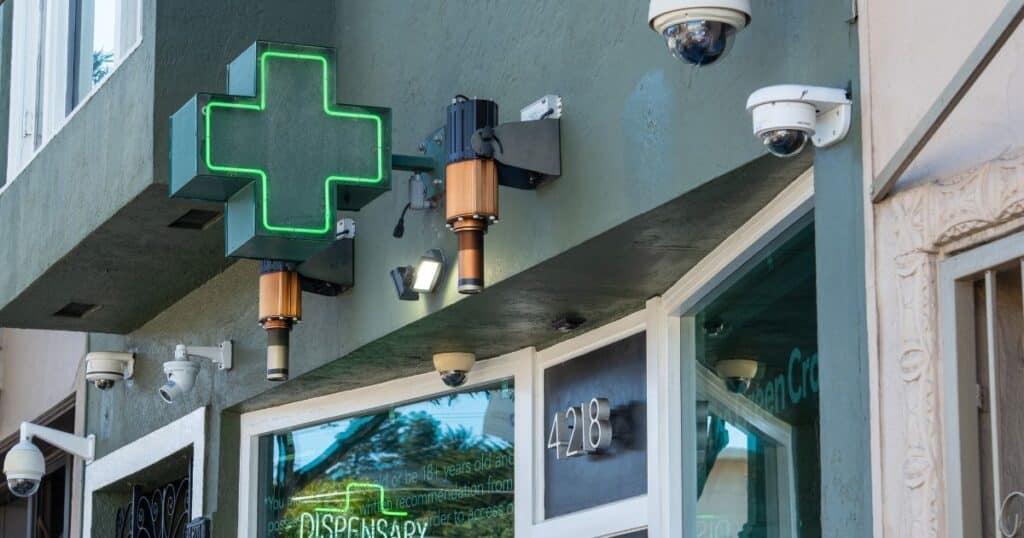The California Department of Cannabis Control (DCC) recently announced the launch of its Local Jurisdictional Retail Access Grant (LJRAG) program, an unprecedented initiative to provide funding to local jurisdictions to expand access to licensed cannabis retail stores.
The DCC has committed $20 million for the LJRAG program and has already awarded around $4 million in grants to 18 cities and counties across the state. The grant aims to address unmet consumer demand and help curb the illicit market by incentivizing best practices like supporting equity operators and utilizing existing licensing and permitting processes. Additionally, through this program, eligible localities have a chance to win additional funds based on how many local retail licenses they issue.
The DCC has prioritized localities with a high demand for cannabis but limited access to licensed retailers, hoping that the grant money will be used to develop retailer licensing programs and help these areas get on board with the heavily regulated marijuana industry. Furthermore, this program is designed to help create legal pathways for legacy and social equity operators, helping even out the playing field in an industry plagued by racism and inequality. With this innovative approach to addressing cannabis access issues, California is setting a valuable example of how states can respond holistically and responsibly to the needs of their constituents.
Background Information
The DCC has prioritized localities with a high demand for cannabis but limited access to licensed retailers, hoping the grant money will be used to develop retailer licensing programs and help these areas get on board with the heavily regulated marijuana industry. In order to be eligible for the grants, local governments must currently have no retail licensing program but plan to develop and implement one. Those with existing programs or those where retailers have already been approved are not eligible.
Additionally, jurisdictions that intend to support equity-centric licensing policies, such as minority ownership of cannabis businesses and community reinvestment plans, are being prioritized. The grant money can be used in several ways, including drafting and adopting ordinances, hiring staff and contractors, holding community outreach events, forming stakeholder workgroups, conducting economic studies and environmental reviews, developing application forms or online portals, and processing and issuing cannabis retail licenses.
When the phase two grants through this program are processed, additional funding may be awarded to eligible localities “based on the number of local retail licenses they have issued.” This is an exciting opportunity for areas with limited access to licensed retailers as it increases their chances of receiving more funds to develop their programs further. With this innovative approach to addressing cannabis access issues, California is setting a valuable example of how states can respond holistically and responsibly to the needs of their constituents.
Phase I Grants Awards
The DCC’s Breakdown of Phase 1 Grants
| Jurisdiction | Base Award Amount | Equity Bonus Funds | Total Phase I Award |
|---|---|---|---|
| City of Riverside | $325,000 | $150,000 | $475,000 |
| Los Angeles County | $325,000 | $150,000 | $475,000 |
| City of Huntington Beach | $325,000 | N/A | $325,000 |
| City of Buena Park | $225,000 | $90,000 | $315,000 |
| City of Hawthorne | $225,000 | $90,000 | $315,000 |
| City of Lodi | $200,000 | $75,000 | $275,000 |
| Nevada County | $200,000 | $75,000 | $275,000 |
| City of West Sacramento | $175,000 | $60,000 | $235,000 |
| City of Claremont | $150,000 | $45,000 | $195,000 |
| City of Montclair | $150,000 | $45,000 | $195,000 |
| City of Covina | $175,000 | N/A | $175,000 |
| City of Corcoran | $125,000 | $30,000 | $155,000 |
| City of Bell Gardens | $150,000 | N/A | $150,000 |
| City of Calabasas | $125,000 | N/A | $125,000 |
| City of Avenal | $100,000 | $15,000 | $115,000 |
| City of Sand City | $100,000 | $15,000 | $115,000 |
| City of Winters | $100,000 | $15,000 | $115,000 |
| City of Yreka | $100,000 | $15,000 | $115,000 |
| Totals | $3,275,000 | $870,000 | $4,145,000 |
“The Local Jurisdictional Retail Access Grant program will help provide access to regulated cannabis retail for over 2 million Californians that currently live in an area where access to licensed cannabis retail businesses is insufficient,” said Department of Cannabis Control Acting Director Rasha Salama. “In addition to improving access to existing customers, these grants are another important step towards establishing legal pathways for legacy and social equity operators.”
The DCC has allocated $20 million for the LJRAG program, which includes a second phase of awarding grants to eligible localities. For this phase two grant cycle, those jurisdictions that have issued licenses to cannabis retailers will be eligible for additional funds. The amount of funding awarded to each locality will depend on the number of local retail licenses they have issued and the population size within their jurisdiction.
These grants are designed to incentivize local governments to support equity-centric licensing policies such as minority ownership of cannabis businesses and community reinvestment plans. This is an exciting opportunity for those areas with limited access to licensed retailers as it increases their chances of receiving more funds in order to develop their programs further.
Keep updated on all the latest news and updates in the Cannabis industry here at Beard Bros Pharms by signing up for our Friday Sesh Newsletter here. Always Dank and Never Spam!
















